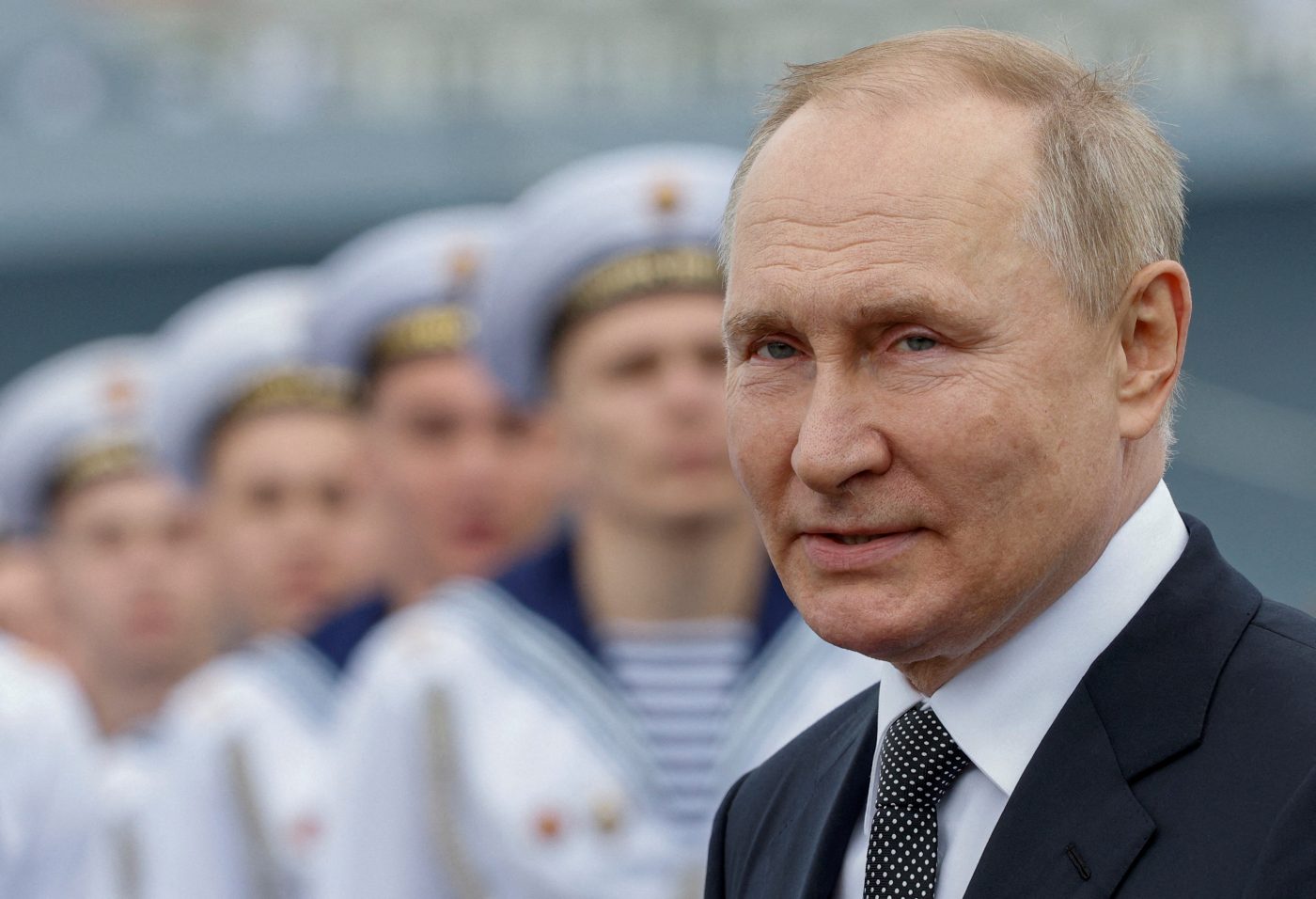It is tempting to dismiss the International Criminal Court (ICC) indictment of Vladimir Putin on charges of war crimes as little more than a symbolic victory, a gesture of moral solidarity with Ukraine of little practical importance. That temptation should be resisted.
While the chances of seeing Putin on the defendant’s bench at the Hague are slim, and the indictment is unlikely to change the short-term course of the war on the ground, the ICC’s announcement will radically reshape the nature of the relationship between Russia and the rest of the world, and the contours of politics within Russia itself. For policymakers in Europe, the “global south” and Russia’s own commanding heights, the inescapable new reality is this: there is no future with Putin.
For as long as Putin is in power, the ICC’s indictment permanently de-normalizes Russia’s relationship with all 123 state parties of the Rome Statute. Legally, each of these states — including every member of the European Union, most African states, all Latin and South American states except Cuba and Nicaragua, and even Tajikistan — are required to arrest Putin if he ever steps foot on their territory. Politically, few heads of state from ICC-respecting countries will want to be seen shaking hands with the only sitting president other than Sudan’s Omar Al Bashir to be indicted by the Hague. With summit-level interactions effectively frozen, the rest of Russia’s relationships with these countries will suffer an inevitable chill.
For democratic states in particular – where leaders are more sensitive to public opinion, and thus to accusations of consorting with a wanted war criminal – the ICC’s decision will put paid to any remaining conversations about returning to the status quo ante for as long as Putin reigns. In Europe, that realization will have an immediate impact on the approach to the war: with no prospect of doing business with Putin, there is no reason to hedge politically against an outcome in which his regime persists. Put bluntly, Putin has no face left to save.
That same realization will be dawning on those parts of the Russian elite who have allowed themselves to believe in at least a partial post-war reconciliation with the West. Putin has thus far headed off dissatisfaction among parts of the elite — particularly those whose own power is tied to trade and finance, rather than security and hydrocarbons — by maintaining a degree of ambiguity about how this war might end, and what might come next. As a result, elites unhappy with the war have been incentivized to wait things out. Putin’s new, formal status as an indicted war criminal, with all its attendant political consequences in Europe and beyond, means there’s no longer anything for which to wait.
Putin, of course, will not sit idly by. He will work to discredit the ICC, particularly among those countries that have been unwilling to participate in the effort to isolate Russia, portraying the court as a puppet of a hypocritical West. But It will be an uphill battle, given that many of those countries are also signatories of the Rome Statute, a status they will not be eager to relinquish.
Even so, complacency would be misguided, as is the continuing US refusal to engage directly with the ICC, which means America is out of step with the rest of NATO. If the US wants to demonstrate its adherence to restoring a rules-based world order, it should ratify the Rome Statute and put the final nail in the coffin of Putin’s global ambitions.
Sam Greene is Director for Democratic Resilience at the Center for European Policy Analysis (CEPA). He is also a Professor of Russian Politics at King’s College London. Before joining CEPA, he founded and directed the King’s Russia Institute.
Europe’s Edge is CEPA’s online journal covering critical topics on the foreign policy docket across Europe and North America. All opinions are those of the author and do not necessarily represent the position or views of the institutions they represent or the Center for European Policy Analysis.





